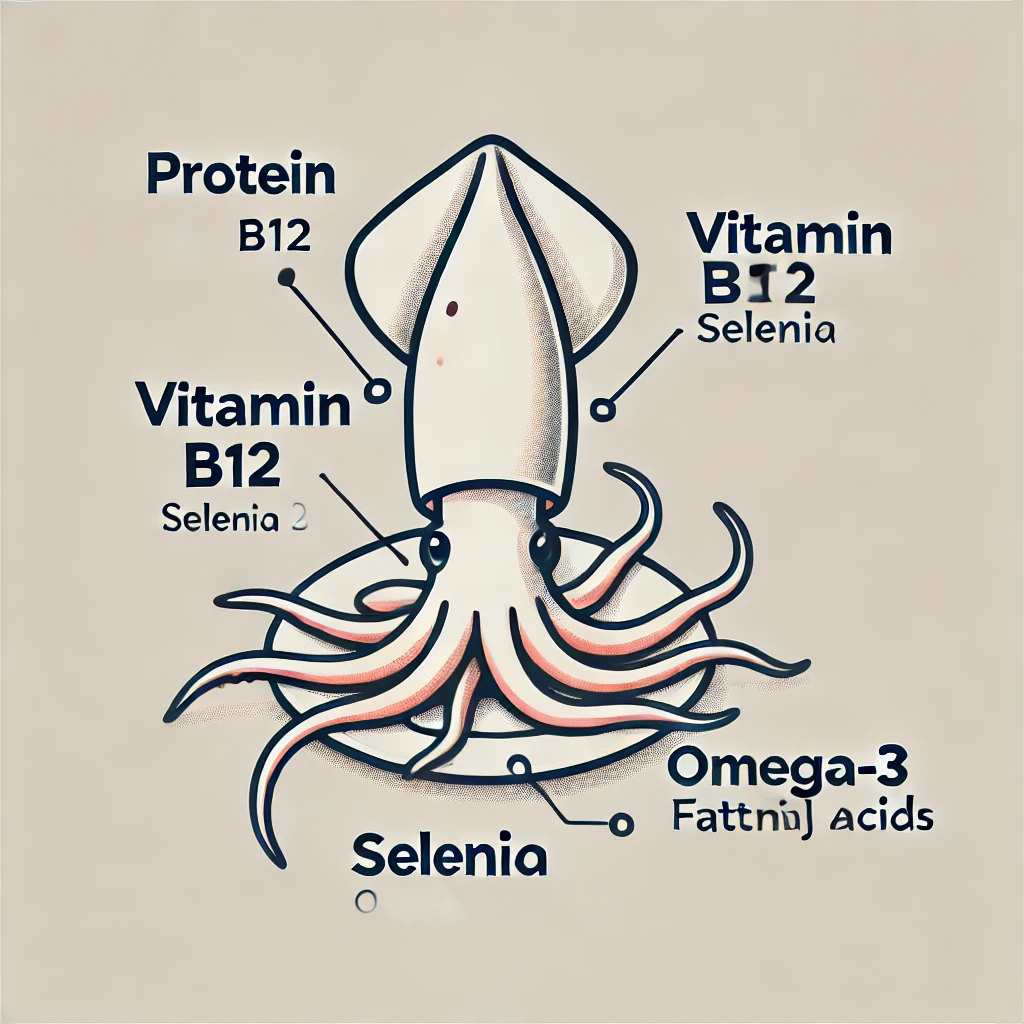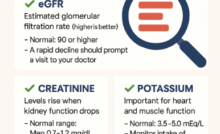Nutritional Benefits of Squid and Its Health Advantages


Squid is known as a healthy food from the sea, packed with a variety of nutrients. It is a high-protein, low-fat food that is ideal for a balanced diet, especially for those considering weight management. Below, we explore the main nutrients in squid and its health benefits.
Key Nutrients
- Protein: Contains about 16-18g of protein per 100g, which aids in muscle building and recovery.
- Vitamin B12: Plays a crucial role in nerve health and red blood cell production.
- Selenium: A powerful antioxidant that helps prevent cell damage.
- Omega-3 Fatty Acids: Promotes cardiovascular health and reduces inflammation.
- Iron: Helps prevent anemia and ensures efficient oxygen transport in the body.
- Taurine: Essential for blood pressure regulation and cholesterol management.
Health Benefits of Eating
- Improves Cardiovascular Health: Omega-3 fatty acids and taurine enhance blood circulation and reduce the risk of heart diseases.
- Aids in Recovery: High protein and essential amino acids help in physical recovery and energy boost.
- Strengthens Immunity: Selenium and zinc support the immune system.
- Supports Weight Management: Low calorie and low-fat content make it suitable for a weight-loss diet.
Precautions for Kidney Patients When Eating Squid
For individuals with kidney issues, it is important to avoid excessive intake of certain nutrients, particularly sodium and phosphorus, when consuming.
Precautions
- Sodium Content: Processed (e.g., dried squid, marinated squid) often contains high sodium levels, which can worsen swelling and hypertension.
- Phosphorus Content: It is rich in phosphorus, so kidney patients should limit their intake as excessive phosphorus can negatively affect bone health.
- Cooking Methods: Opt for steaming, grilling, or boiling instead of frying to reduce calorie and sodium intake.
- Limit Serving Size: Keep the serving size to less than 100g per meal to ensure safety.
Tips for Kidney Patients
- Use Low-Sodium Recipes: Replace seasonings with natural herbs and spices to control sodium levels.
- Balance Nutrients: Pair with vegetables to reduce phosphorus intake and manage potassium levels.
- Soaking Method: Soak in water to reduce its sodium content before cooking.
Why Does My Urine Smell Like Food? Should I See a Doctor?
Recent Posts
How to Read Your Blood Test Results: A Guide for Kidney Disease Management
When managing chronic kidney disease (CKD), regular blood tests are essential. Blood test results help…
How to Follow a Low-Potassium Diet?
Potassium is an essential mineral that helps regulate heart function and muscle contractions. However, for…
How Can Kidney Disease Patients Exercise Safely in the Summer?
Summer’s high temperatures and humidity significantly increase the risk of dehydration and heat-related illnesses during…
5 Essential Principles for Accurate Blood Pressure Measurement – Including Real-Life Cases and Nighttime Hypertension
Why Is Accurate Blood Pressure Measurement Important? Blood pressure (BP) is a vital, dynamic health…
Hypertension: The Silent Killer That Destroys Your Kidneys
Introduction Hypertension is often called the “silent killer.” Without obvious symptoms, it gradually damages major…
A Gene-Edited Pig Kidney in a Human — A Medical Miracle Becomes Reality
🐷 A Pig’s Kidney in a Human Body? Sounds like science fiction — but in…
